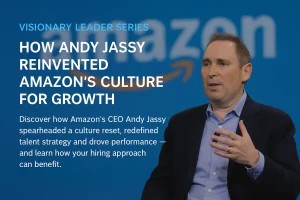“The stakeholder interview questions represents far more than a procedural requirement—it serves as the foundational mechanism through which executive leaders transform organizational complexity into strategic clarity, converting diverse perspectives into unified project management excellence and sustainable competitive advantage.”
Contemporary organizational leadership demands sophisticated approaches to stakeholder management that transcend traditional consultation models, evolving into strategic frameworks that harness the collective intelligence of diverse constituencies while driving measurable business outcomes. The stakeholder interview emerges as a critical executive tool that enables senior leaders to navigate complex organizational dynamics, align strategic objectives across multiple stakeholder groups, and establish the foundational relationships necessary for transformational project success.
Within the context of modern project management, the strategic application of stakeholder interview questions enables executives to systematically capture institutional knowledge, identify potential resistance points, and develop comprehensive engagement strategies that ensure broad-based organizational commitment to strategic initiatives. This sophisticated approach to stakeholder management recognizes that sustainable project success depends not merely on technical execution but on the ability to orchestrate complex human dynamics toward shared objectives.
The evolution of stakeholder management interview questions from basic information-gathering exercises to sophisticated strategic instruments reflects the increasing complexity of contemporary business environments, where success depends on the ability to synthesize diverse perspectives, manage competing priorities, and build consensus around transformational change initiatives. Executive leaders who master these techniques position their organizations for sustained competitive advantage through superior stakeholder alignment and engagement.
The Strategic Imperative of Stakeholder Interview Excellence
The contemporary business environment demands that executives approach stakeholder interview processes with the same rigor and strategic thinking applied to financial planning and market analysis, recognizing that stakeholder alignment represents a critical success factor that determines the ultimate viability of strategic initiatives. The management interview questions and answers framework must be designed to elicit not merely superficial preferences but deep insights into stakeholder motivations, concerns, and strategic priorities that influence organizational decision-making.
Sophisticated stakeholder management requires executives to understand that each stakeholder interview represents an opportunity to build strategic relationships, gather competitive intelligence, and identify potential synergies that can be leveraged to drive organizational performance. The systematic application of well-designed stakeholder interview questions enables leaders to transform what might otherwise be fragmented organizational knowledge into coherent strategic insights that inform decision-making and resource allocation.
The guide to stakeholder interviews for executive leadership emphasizes the importance of approaching these conversations as strategic engagements rather than administrative exercises, with each interaction designed to advance organizational objectives while strengthening stakeholder relationships. This approach recognizes that effective stakeholder management serves as a multiplier for organizational capabilities, enabling leaders to achieve results that exceed the sum of individual contributions.
When executives conduct a stakeholder interview with strategic intent, they create opportunities to identify emerging trends, assess competitive threats, and discover innovative solutions that might not be apparent through traditional analytical approaches. The insights generated through systematic stakeholder interview processes provide executives with enhanced situational awareness and enable more informed strategic decision-making across the organization.
Executive Framework for Stakeholder Engagement
The development of comprehensive stakeholder management interview questions requires executives to consider multiple dimensions of organizational complexity, including political dynamics, resource constraints, competitive pressures, and cultural factors that influence stakeholder behavior and decision-making. This multi-dimensional approach ensures that stakeholder interview processes capture the full spectrum of factors that may impact project success and organizational performance.
Strategic project management leaders recognize that effective stakeholder interview design must balance the need for comprehensive information gathering with respect for stakeholder time and attention, creating structured yet flexible frameworks that encourage open dialogue while ensuring that critical strategic questions are addressed. The ability to prepare questions that elicit meaningful insights while maintaining stakeholder engagement represents a core executive competency.
The integration of stakeholder interview findings into broader strategic planning processes requires executives to develop sophisticated analytical capabilities that enable the synthesis of qualitative insights with quantitative performance metrics, creating comprehensive organizational intelligence that informs both tactical and strategic decision-making. This analytical integration transforms individual stakeholder perspectives into organizational knowledge assets that drive competitive advantage.
Mastering the Art of Strategic Stakeholder Interview Questions
The formulation of effective stakeholder interview questions demands executive-level strategic thinking that goes beyond surface-level inquiry to explore the deeper motivations, concerns, and aspirations that drive stakeholder behavior and decision-making within complex organizational contexts. The successful stakeholder engagement depends on the executive’s ability to design interview question frameworks that encourage authentic dialogue while systematically gathering the intelligence necessary for informed strategic planning.
Sophisticated project management leaders understand that questions about stakeholder management must be crafted to reveal not only current stakeholder positions but also potential areas of flexibility, compromise, and collaboration that can be leveraged to build broader organizational consensus around strategic initiatives. The ability to ask stakeholder representatives the right questions at the appropriate time represents a critical executive skill that directly impacts project outcomes and organizational performance.
The development of comprehensive stakeholder interview questions requires executives to anticipate the full range of potential responses and prepare appropriate follow-up questions that can explore emerging themes, clarify ambiguous positions, and identify opportunities for strategic alignment. This preparatory work ensures that each stakeholder interview maximizes the value of stakeholder time while generating actionable insights that inform strategic decision-making.
“The executive who masters the strategic application of stakeholder interview questions transforms organizational complexity into competitive advantage, converting diverse perspectives into unified action through sophisticated stakeholder management techniques that drive measurable business results.”
When executives conduct stakeholder interviews with strategic sophistication, they create opportunities to identify hidden organizational assets, discover unrealized synergies, and develop innovative approaches to persistent challenges. The systematic application of well-designed stakeholder interview questions enables leaders to tap into the collective intelligence of their organizations while building the stakeholder alignment necessary for successful strategy execution.
Strategic Question Design Methodology
The creation of effective stakeholder management interview questions requires executives to balance multiple objectives simultaneously, including information gathering, relationship building, consensus development, and strategic positioning. This multi-dimensional approach ensures that each stakeholder interview advances multiple organizational objectives while respecting stakeholder time and attention constraints.
Executive-level project management demands that leaders develop question frameworks that can adapt to different stakeholder types, organizational levels, and cultural contexts while maintaining consistency in strategic intent and information quality. The ability to customize stakeholder interview questions for different audiences while preserving analytical rigor represents a sophisticated executive competency that drives superior organizational outcomes.
The systematic documentation and analysis of stakeholder interview responses enables executives to identify patterns, trends, and themes that might not be apparent through individual conversations, creating organizational intelligence that informs both immediate tactical decisions and long-term strategic planning. This analytical capability transforms stakeholder engagement from isolated interactions into integrated strategic intelligence gathering.
The Executive’s Guide to Stakeholder Interview Implementation
The successful implementation of strategic stakeholder interview programs requires executive leadership that can orchestrate complex organizational dynamics while maintaining focus on strategic objectives and measurable outcomes. The conduct a stakeholder interview process must be designed to accommodate the diverse needs, preferences, and constraints of different stakeholder groups while ensuring consistent information quality and analytical rigor across all interactions.
Sophisticated project management leaders recognize that the timing and sequencing of stakeholder interview activities can significantly impact both the quality of information gathered and the level of stakeholder engagement achieved. Strategic executives must carefully consider how to integrate stakeholder interview processes into broader organizational communication and decision-making cycles to maximize their strategic impact and ensure appropriate resource allocation.
The development of systematic approaches to conduct stakeholder interviews enables executives to scale their engagement efforts across large, complex organizations while maintaining the personal touch and strategic focus necessary for meaningful stakeholder relationships. This scalability is essential for leaders managing multiple strategic initiatives simultaneously while ensuring that each stakeholder feels valued and heard.
When executives approach stakeholder management with systematic rigor, they create opportunities to identify emerging risks and opportunities before they become critical issues, enabling proactive rather than reactive management approaches that drive superior organizational performance. The ability to anticipate and address stakeholder concerns through strategic stakeholder interview processes represents a significant competitive advantage in dynamic business environments.
Operational Excellence in Stakeholder Engagement
The integration of stakeholder interview insights into organizational decision-making processes requires sophisticated analytical capabilities that can synthesize qualitative insights with quantitative performance metrics, creating comprehensive organizational intelligence that informs both strategic and operational decisions. This analytical integration represents a core executive competency that drives measurable business results.

Strategic project management demands that leaders develop systems and processes that can capture, analyze, and act upon stakeholder interview insights in real-time, ensuring that organizational learning translates into improved performance and competitive advantage. The ability to transform stakeholder engagement into organizational capability represents a sophisticated leadership skill that distinguishes exceptional executives from their peers.
The establishment of feedback loops that connect stakeholder interview insights to measurable business outcomes enables executives to continuously refine their engagement strategies while demonstrating the tangible value of stakeholder-centric approaches to organizational leadership. This measurement capability is essential for sustaining organizational commitment to sophisticated stakeholder management practices over time.
Advanced Stakeholder Interview Methodologies for Executive Leadership
The evolution of stakeholder interview methodologies toward more sophisticated analytical frameworks reflects the increasing complexity of contemporary business environments and the growing recognition that stakeholder alignment represents a critical determinant of strategic success. Executive leaders must master advanced techniques that can capture nuanced stakeholder perspectives while generating actionable insights that inform complex organizational decision-making processes.
Contemporary project management excellence requires executives to understand that stakeholder interview processes serve multiple strategic functions simultaneously, including intelligence gathering, relationship building, consensus development, and organizational learning. The ability to optimize these processes for maximum strategic impact while maintaining stakeholder satisfaction represents a sophisticated executive competency that drives superior organizational performance.
The integration of stakeholder interview methodologies into broader organizational intelligence systems enables executives to develop comprehensive understanding of their operating environments while identifying emerging trends and opportunities that may not be apparent through traditional analytical approaches. This systematic approach to stakeholder engagement transforms individual conversations into organizational strategic assets that drive competitive advantage.
When executives master advanced stakeholder management techniques, they position their organizations to navigate complex change initiatives with greater confidence and higher success rates, demonstrating the tangible business value of sophisticated stakeholder engagement approaches. The ability to translate stakeholder insights into organizational capability represents a critical leadership skill that distinguishes exceptional executives from their peers.
Strategic Integration and Organizational Learning
The development of organizational capabilities around stakeholder interview excellence requires executive leadership that can balance immediate tactical needs with long-term strategic objectives, ensuring that stakeholder engagement processes contribute to sustained competitive advantage rather than merely addressing immediate operational requirements. This strategic perspective is essential for maximizing the organizational return on stakeholder engagement investments.
Sophisticated project management leaders recognize that stakeholder interview processes must be designed to generate insights that inform multiple organizational functions simultaneously, including strategic planning, risk management, innovation development, and performance optimization. This multi-functional approach maximizes the value of stakeholder time while ensuring that engagement efforts contribute to broad-based organizational improvement.
The systematic documentation and analysis of stakeholder interview insights enables executives to build organizational knowledge bases that support decision-making across multiple time horizons and functional areas, transforming individual stakeholder relationships into institutional assets that drive sustained organizational performance. This knowledge management capability represents a sophisticated organizational competency that enhances competitive positioning.
Transforming Stakeholder Insights into Competitive Advantage
The strategic application of stakeholder interview insights requires executive leadership that can synthesize diverse perspectives into coherent strategic direction while maintaining stakeholder alignment and organizational momentum. The ability to transform individual stakeholder conversations into organizational intelligence that drives measurable business results represents a critical executive competency that distinguishes high-performing organizations from their competitors.
Contemporary project management excellence demands that executives develop sophisticated analytical capabilities that can identify patterns and trends across multiple stakeholder interview interactions, generating insights that inform both immediate tactical decisions and long-term strategic planning. This analytical sophistication enables leaders to anticipate market changes and competitive threats while positioning their organizations for sustained success.
The integration of stakeholder management excellence into organizational culture requires executive leadership that can model sophisticated engagement behaviors while establishing systems and processes that support consistent stakeholder relationship quality across the organization. This cultural transformation represents a significant competitive advantage in environments where stakeholder relationships determine market success.
“The executive who transforms stakeholder interview processes into strategic organizational capabilities creates sustainable competitive advantage through superior stakeholder alignment, enhanced market intelligence, and accelerated organizational learning that drives measurable business performance.”
When organizations achieve excellence in stakeholder interview implementation, they create feedback loops that continuously improve their understanding of market dynamics, competitive positioning, and organizational capabilities, enabling adaptive strategies that respond effectively to changing business conditions while maintaining stakeholder confidence and support.
Organizational Capability Development
The development of organizational excellence in stakeholder management requires executive leadership that can balance standardization with customization, ensuring that engagement processes maintain consistency and quality while adapting to the unique needs and preferences of different stakeholder groups. This balance is essential for achieving scale while preserving the personal relationships that drive stakeholder commitment and support.
Strategic project management leaders must develop organizational capabilities that can support sophisticated stakeholder interview processes across multiple business units, geographic regions, and cultural contexts, ensuring that global organizations can maintain consistent stakeholder relationship quality while respecting local preferences and requirements. This scalability represents a critical organizational competency for multinational enterprises.
The measurement and continuous improvement of stakeholder interview effectiveness requires executives to establish metrics and feedback systems that can track both stakeholder satisfaction and business impact, enabling data-driven refinement of engagement strategies while demonstrating the tangible value of stakeholder-centric organizational approaches. This measurement capability is essential for sustaining organizational commitment to stakeholder excellence over time.
Executive Leadership in Stakeholder Interview Excellence
The mastery of strategic stakeholder interview techniques represents a fundamental executive competency that enables leaders to navigate complex organizational environments while building the stakeholder alignment necessary for sustained competitive advantage. The sophisticated application of stakeholder management principles through systematic interview processes transforms organizational complexity into strategic clarity, enabling executives to drive measurable business results through enhanced stakeholder engagement and collaboration.
Contemporary organizational success increasingly depends on the ability of executive leaders to synthesize diverse stakeholder perspectives into coherent strategic direction while maintaining the flexibility necessary to adapt to changing business conditions and emerging opportunities. The strategic application of stakeholder interview questions enables leaders to gather the intelligence necessary for informed decision-making while building the relationships that support successful strategy execution.
The evolution of project management toward more stakeholder-centric approaches reflects the growing recognition that sustainable competitive advantage depends not merely on technical excellence or financial resources but on the ability to orchestrate complex human dynamics toward shared objectives. Executive leaders who master these sophisticated engagement techniques position their organizations for sustained success in increasingly competitive global markets.
The transformation of traditional stakeholder interview processes into strategic organizational capabilities requires executive vision, systematic implementation, and continuous refinement based on measurable outcomes and stakeholder feedback. This transformation represents a significant organizational investment that generates substantial returns through enhanced market intelligence, improved stakeholder relationships, and accelerated organizational learning that drives sustained competitive advantage and measurable business performance.









